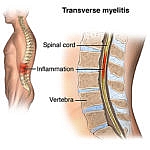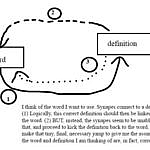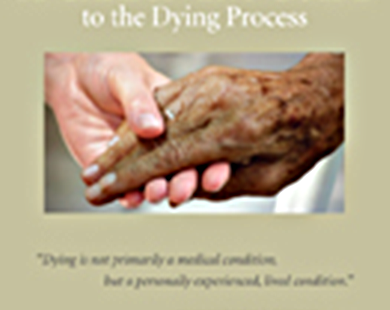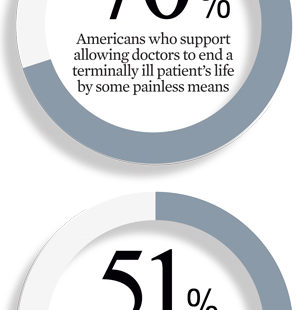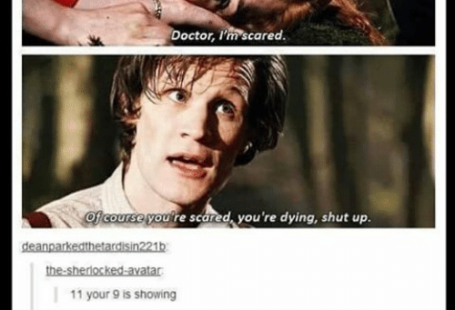Most of us have wondered, “How will I die?” Here, author and psychoanalyst Jason Kurtz describes the different types of death you could experience. The way I see it, it all boils down to one thing: living in the moment.
When Jason worked with dying people in Calcutta – and later at the Chalice of Repose Project in Missoula, Montana – he learned that there are different kinds of death. “Some people die alone and afraid, some die angry, and some die resentful and cruel,” says Jason. “But there are others who have the ability to say goodbye to those they care about. They die in peace and tranquility.”
How will you die – will you be alone and afraid, or supported and loved? You’ll never find the exact cause of or reason for your death the internet, but you could discover the best way to live. Here, Jason describes what he learned about the Buddhist view of death and how to best support someone who is dying. He also shares what it’s like to sit with a loved one who is very close to the end of her life.
How Will You Die?
“It is possible to have a rewarding death, connected to loved ones and at peace with one’s reality,” says Jason. “Making the most of the time we have – filling our life with love – will make death easier to bear. We’ll have less regrets and more support.”
Here are Jason’s thoughts on my questions about death and dying. In creating this blog for people who are dying, I’m learning that questions about death are ultimately questions about life.
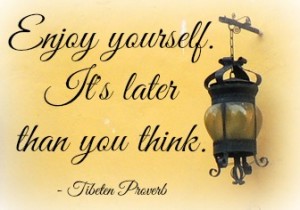
“How Will You Die” image by Laurie
If you’re caring for someone dying, you might have to change your thinking. “Generally, when I was with someone who was in distress, I felt like I had to do something to help fix their problem,” says Jason. “When someone is dying you can try to help them get comfortable, but you can’t fix the larger problem. So, what can you do when something painful and frightening is coming and it can’t be avoided? You can make sure that the person does not have to confront this unknown and difficult process alone.” If you’re wondering how you will die, you may also be dealing with the fear that you’ll die alone.
The best way to help someone who is dying is to stop being so busy, slow down, and sit with them. Talk to him, offer a massage or something to eat or drink. But, mostly you just need to sit down and be with him so he doesn’t have to face death alone. When they wonder how they will die, you can say, “I don’t know how you’ll die, but you won’t die alone.” This might help them prepare for death.
Consider the Buddhist view that death is a life experience. “The Buddha taught that the cycle of craving pleasant experiences and avoiding unpleasant experiences caused much of our suffering,” says Jason. “In theory, Buddhism teaches that all feelings and sensations are worth noticing and learning about. Death is no different.” When Jason’s time to die comes, he hopes he’ll have the strength to face his experience and be with whatever he feels, pleasant or unpleasant. He doesn’t know how he will die – just like you don’t know you will die – but he wants to know what death is like, just like he wants to know what life is like. This helps take the fear out of death.“I think fear and aversion make all experiences more difficult and less pleasant,” he says, “I hope that believing that death is a valuable part of life will help me have the kind of peaceful death I have seen others experience.”
Know that being with a dying person can be a rewarding, enriching experience. Jason had the privilege of being with his grandmother when she passed. He sat by her bedside, brushed her hair, and gave her bits of ice to soothe her throat. He held her hand and let his presence show her how much I loved her. “Whenever I think of this I am profoundly moved and grateful,” Jason says. “I had the privilege of supporting her and loving her as she made this transition, and it connects me with my grandmother and fills me with a feeling of love to this day.”
Worry less about how you will die, and start thinking about how you will live. What’s happening now is all that we really have, says Jason, so be careful not to waste your precious life. “Even in death, there can be moments of connection and love. Even in death, there can be moments of peace and fulfillment.”
Connect with people you love, even when they’re facing death. Tell them you love them and respect them. Tell them whatever you want them to know. Do what you can to help them hold onto what’s best about who you are. If you do this, it will be easier to have a peaceful transition into death or whatever comes next.
“What we do at the end of life can have a great impact on those we love, and this should not be missed,” says Jason.
Jason Kurtz is the Director of Training at the Training Institute for Mental Health, a post-graduate Psychoanalytic training institute. He is also a psychoanalyst in private practice in Manhattan, and the author of Follow the Joy: A Memoir.
If you want to avoid death at all costs – or you’re still concerned with how you’ll die – read How to Find Your Life Purpose and Live Longer.

